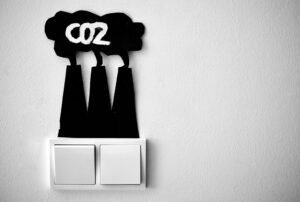November 26, 2017, New York Times
President-elect Donald Trump met at the New York Times this past Tuesday with the Times’ publisher and a few of its editors, columnists, and reporters. The Times describes the interview in “Trump, in Interview, Moderates Views but Defies Conventions.” The meeting had been scheduled, canceled, and then reinstated after a dispute over the ground rules. Here is the full transcript of the interview.
Charles M. Blow’s op-ed “No, Trump, We Can’t Just Get Along” on Wednesday was written in response to Mr. Trump’s concluding interview comment: “I will say, The Times is, it’s a great, great American jewel. A world jewel. And I hope we can all get along well.”
I will say proudly and happily that I was not present at this meeting. The very idea of sitting across the table from a demagogue who preyed on racial, ethnic and religious hostilities and treating him with decorum and social grace fills me with disgust, to the point of overflowing. Let me tell you here where I stand on your “I hope we can all get along” plea: Never.
That was hardly Mr. Blow’s most contentious comment. As of Sunday morning, his op-ed still ranked first among most emailed Times articles and had more than 2,300 comments. A new CNN poll indicates that at least 80 percent of Americans contend the U.S. is more deeply divided on major issues than in the past several years. Regardless of your opinion of Mr. Trump or Mr. Blow’s vowed resistance, the need for a vigorous nonprofit sector and perhaps even revitalized civic education has arguably never been greater.
Regardless of who won the election, the results of which are still being contested in Michigan, Pennsylvania, and Wisconsin, civil society remains that vital set of diverse non-governmental institutions that can uniquely check and oppose the state when necessary. When has it ever been healthy for the country’s “independent sector” to consistently “all get along” with government at the local, state, or federal levels? Inequality, for example, is at its highest level today since 1928. This election didn’t change the need for civil society to resist government action harmful to the most vulnerable people in society. Mr. Trump did not create the feelings of fear, anger, frustration, and hopelessness that divide the nation; he merely used them.
You don’t get a pat on the back for ratcheting down from rabid after exploiting that very radicalism to your advantage. Unrepentant opportunism belies a staggering lack of character and caring that can’t simply be vanquished from memory. You did real harm to this country and many of its citizens, and I will never—never—forget that.
The Trump presidency presents new challenges for civil society. Trump is off the political spectrum; he has no background in political activity, has never held elected office, and has shown no interest in holding consistent political positions. However, his words, actions and ethics do matter, and they are part of the public record.
Sign up for our free newsletters
Subscribe to NPQ's newsletters to have our top stories delivered directly to your inbox.
By signing up, you agree to our privacy policy and terms of use, and to receive messages from NPQ and our partners.
Mr. Blow is not automatically countering the Times’ attempts to normalize the incoming Trump administration because he had a column to write.
I’m not trying to convince anyone of anything, but rather to speak up for truth and honor and inclusion. This isn’t just about you, but also about the moral compass of those who see you for who and what you are, and know the darkness you herald is only held at bay by the lights of truth.
No one can deny that Trump—and his campaign facilitators such as Breitbart.com—vulgarized the level of public discourse. Trump continues to belittle people mercilessly, including the Times, serving as an untoward example to students who have since begun to imitate his bullying and taunting in their schools. Mr. Blow is a proponent of a decisive civil society awakened to the need to aggressively protect old gains and to progressively put forth new battles for peace, justice and equity.
President Theodore Roosevelt (1858–1919) reminds us we are all duty-bound to support or oppose the president “exactly to the degree which is warranted by his good conduct or bad conduct… To announce that there must be no criticism of the President, or that we are to stand by the President, right or wrong, is not only unpatriotic and servile, but is morally treasonable to the American public….”
It is Mr. Blow’s patriotic duty to use his platform at the Times to speak the truth as he sees it. And even though public opinion was influenced before this election by a foreign hostile power, Mr. Blow echoes Walt Whitman (1819–1892) by insisting that Americans alone have the power to safeguard the nation: “America, if eligible at all to downfall and ruin, is eligible within herself, not without… Always inform yourself; always do the best you can; always vote.”
Mr. Blow may be speaking for much of civil society today when he writes this protest:
No, Mr. Trump, we will not all just get along. For as long as a threat to the state is the head of state, all citizens of good faith and national fidelity—and certainly this columnist—have an absolute obligation to meet you and your agenda with resistance at every turn.
—James Schaffer













